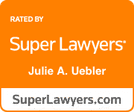
Could Ed Sheeran's Copyright Case Comments Discourage Civil Rights Claims?
May 25, 2023
In early May, a New York jury found that singer Ed Sheeran had independently created his song “Thinking Out Loud.” With the verdict, Sheeran defeated accusations that he had violated federal copyright law by copying another artist’s work. Good for him. But Sheeran’s comments to reporters after the verdict made me cringe. Sheeran was quoted in the press as saying he was “unbelievably frustrated” that “baseless claims like this are allowed to go to court at all.”
As an attorney who represents individual workers in employment matters, including discrimination cases, I worry that Sheeran’s comments will discourage these workers from seeking justice when their civil rights have been violated and undermine (our already shaky) confidence in our civil judicial system.
While Sheeran ultimately prevailed with respect to the copyright infringement claims against him in this instance, the accusations were certainly not “baseless.” In fact, a juror in the case confirmed that the members of the jury all had differing opinions when deliberations first started.
Even so, Sheeran decided to proclaim: “I am not and will never allow myself to be a piggy bank for anyone to shake.” Lost in the pop singer’s sound bites after the verdict, and the related press coverage, was any mention of the safeguards that prevent anyone from using the court system for extortion. In the United States federal court system, lawyers face sanctions for filing lawsuits that are “frivolous,” and plaintiffs’ claims get to a jury only if they have presented sufficient evidence prior to trial that a reasonable jury could find in their favor.
The clients I typically represent are often very conflicted about whether to pursue a lawsuit against an employer. If they file a lawsuit, will they ever get hired again? How will they manage the stress of the adversarial legal proceedings, particularly in cases where they are facing defendants who are significantly more powerful and well-funded? If they don’t win, will everyone think their claims were “baseless?”
In his post-verdict comments, Sheeran also praised the verdict for allowing “songwriters to continue to have artistic freedom.” Although Sheeran found himself defending against claims of copyright infringement, the copyright laws are in place to protect creative artists like him. In fifty plus years, will he or his heirs be using the same laws to prevent someone else from copying his songs? If they do, I hope both sides of the case recognize how privileged we are to live in a community that includes copyright protections regardless of the outcome.
In the meantime, I want to recognize all the people who are brave and strong enough to bring claims to enforce their legal rights as creative artists and as workers. Without them, what incentive do the defendants have to comply with the law as it relates to you and me? To those plaintiffs, I offer my applause.




